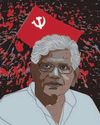
The killings happened 48 hours after three civilians were shot dead by TRF militants. Among the victims was Makhan Lal Bindroo, a Kashmiri Pandit and owner of Srinagar’s famous pharmacy. He was killed at Haft Chinar near Iqbal Park, an area dotted with police and paramilitary camps. An hour after Bindroo’s killing and 8km from Haft Chinar, Virender Paswan, a hawker from Bihar, was shot dead by militants of the Islamic State Wilayah Hind at Lal Bazar. Soon, news of another killing came in—that of Muhammad Shafi Lone, head of a taxi drivers’ union at Shahgund in Bandipore. On October 11, five Army personnel, including a Junior Commissioned Officer (JCO), and two militants were killed in four encounters in different parts of the union territory.
Since this January, 28 civilians have been killed by militants in Kashmir. Five belonged to the local Hindu and Sikh communities, two were Hindu labourers from other states; the remaining 21 were Kashmiri Muslims active in political parties, mostly the BJP.
The recent target killings have triggered panic among the minorities and non-Kashmiris. It also punctured the BJP’s claim of having restored peace in Jammu and Kashmir after the revocation of Article 370 in August 2019. Many compare the current situation with that of the 1990s when Pandits fled Kashmir following attacks on the community and the dread of militancy.
This story is from the {{IssueName}} edition of {{MagazineName}}.
Start your 7-day Magzter GOLD free trial to access thousands of curated premium stories, and 9,000+ magazines and newspapers.
Already a subscriber ? Sign In
This story is from the {{IssueName}} edition of {{MagazineName}}.
Start your 7-day Magzter GOLD free trial to access thousands of curated premium stories, and 9,000+ magazines and newspapers.
Already a subscriber? Sign In

Themes Of Choice
As Savvy Investors Seek New Avenues, Thematic Mutual Funds Are Gaining Popularity

A golden girl
One of India's most formidable beauties passed away earlier this month. The odd thing is she would absolutely hate this obituary; she hated being written about and avoided publicity for all of her nine decades. Indira Aswani was 93 when she died. But anyone who encountered her, even briefly, was in such awe of her grace and poise, and one could not but remember her forever.

The interest in wine is growing delightfully in India
The renowned British wine writer and television presenter Jancis Robinson, 74, recently came to Delhi and Mumbai to reacquaint herself with India's wine industry. This was the Robinson's fourth visit to India; the last one was seven years ago. On this trip, Robinson and her husband, restaurateur Nicholas Lander, were hosted by the Taj Hotels and Sonal Holland, India's only Master of Wine.

United in the states
Indian-Americans coming together under the Democratic umbrella could get Harris over the line in key battlegrounds

COVER DRIVE
Usage-driven motor insurance policies offer several benefits

GDP as the only measure of progress is illogical
Dasho Karma Ura, one of the world's leading happiness experts, has guided Bhutan's unique gross national happiness (GNH) project. He uses empirical data to show that money cannot buy happiness in all circumstances, rather it is family and health that have the strongest positive effect on happiness. Excerpts from an interview:

India is not a controlling big brother
Prime Minister Tshering Tobgay considers India a benevolent elder sibling as the \"big brotherly attitude\" is happily missing from bilateral ties. He thinks the relationship shared by the two countries has become a model of friendship not just for the region, but for the entire world. \"India's attitude is definitely not of a big brother who is controlling and does not allow the little brother to blossom and grow,\" says Tobgay in an exclusive interview with THE WEEK.

Comrade with no foes
Lal Salaam, Comrade Yechury-you were quite a guy!

Pinning down saffron
In her first political bout, Vinesh Phogat rides on the anti-BJP sentiment across Haryana

MAKE IN MANIPUR
Home-made rockets and weapons from across the border are escalating the conflict